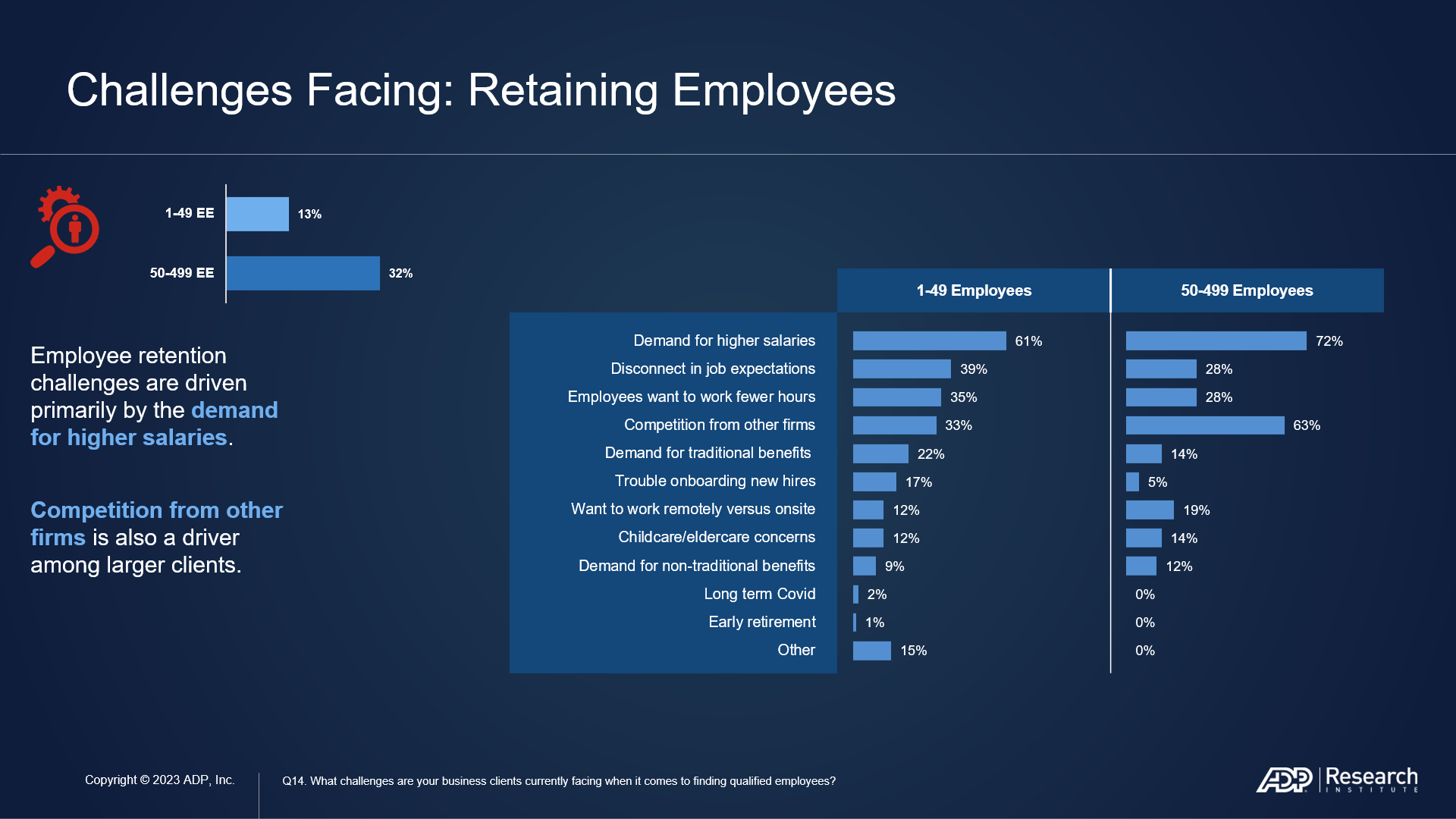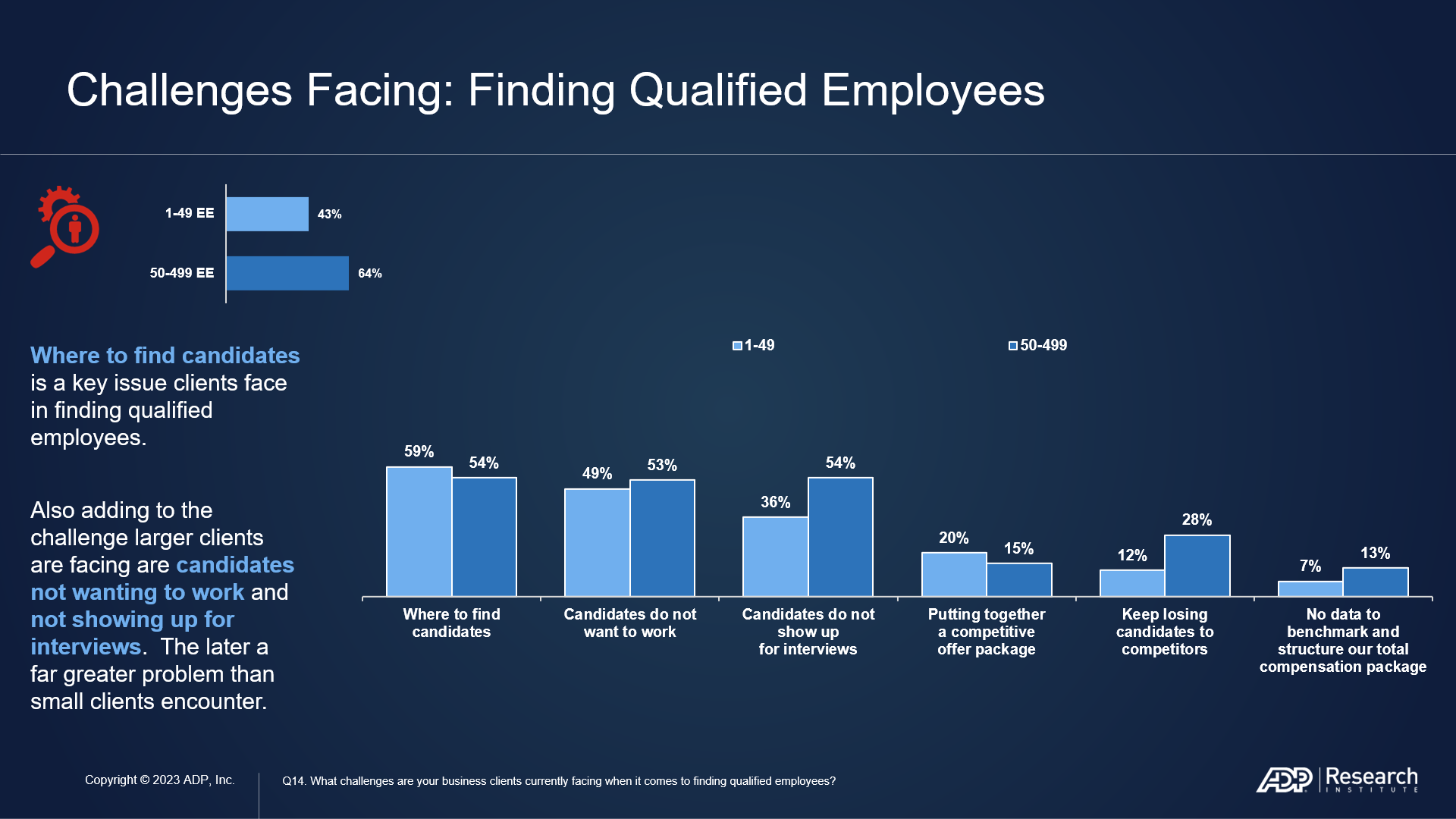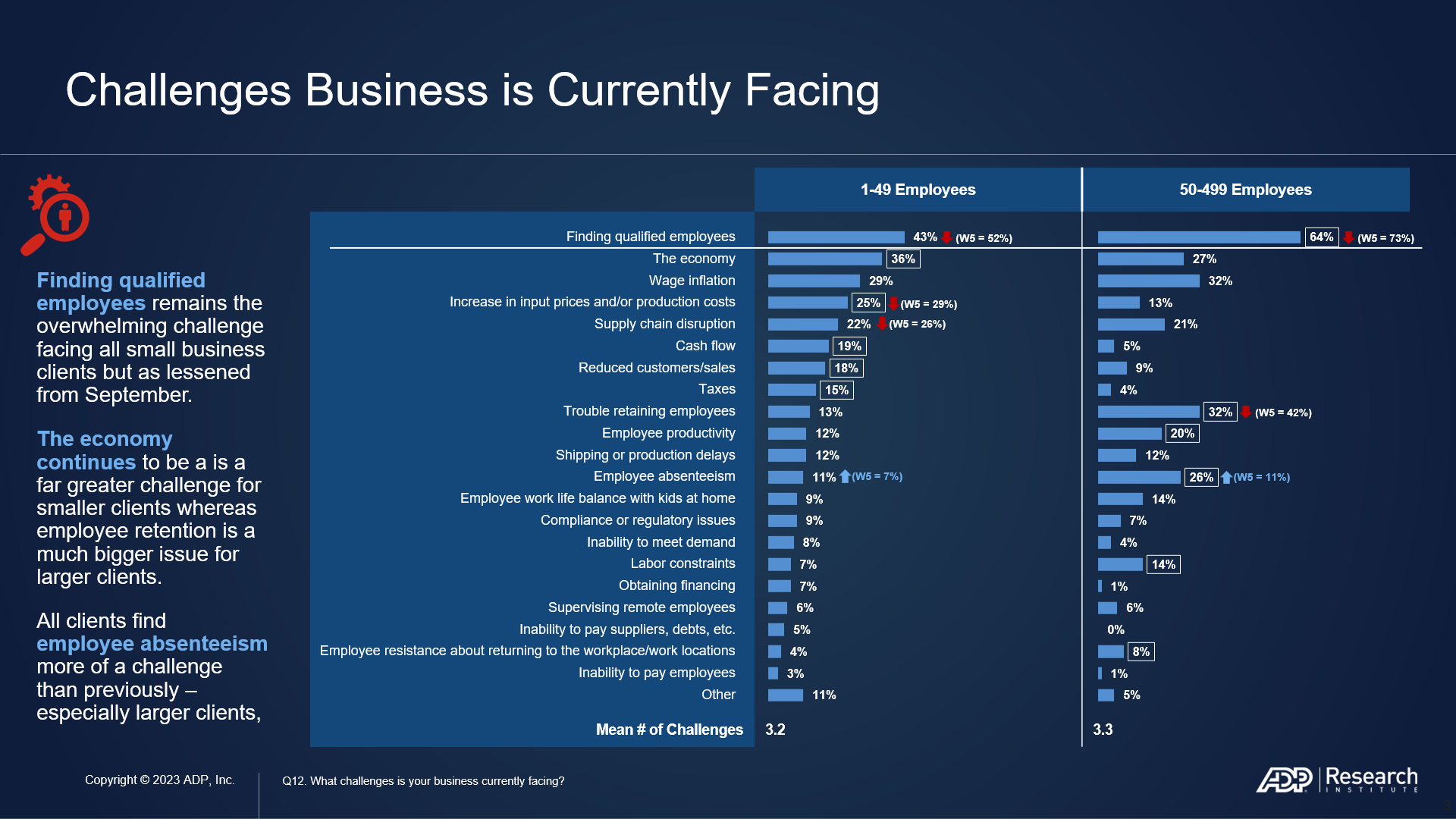
ADP: Employees want more money, job security & training
By onBusiness Practices
Recent research from ADP found that workers value earnings, job security, and career progression as the three most important employment factors. Also, 31% of small businesses with one to 49 employees surveyed said career development and leadership training are an important part of attracting new workers but only 14% said they offer it.
The research findings are laid out in ADP’s “People at Work 2023: A Global Workforce View” report and its “Market Outlook: Research Insights into the Changing Landscape of Small Business” survey results. To put together the People at Work report, ADP surveyed 32,612 workers across the globe. More than 1,250 of ADP’s small business clients participated in the small business survey.
As the collision repair industry as well as the automotive sector as a whole faces a technician shortage, it’s important for shop owners to keep their finger on the pulse of what employees expect when looking for a job, and what makes them stay once they’re hired.
More small businesses with less than 50 employees surveyed now find career development and leadership training more important compared to 2022 when 17% said those offerings were important. Forty-two percent of small businesses with 50-499 employees that were surveyed said they believe career development and leadership training are important, up from 10% compared to the previous survey. A larger percentage, at 35%, of small businesses offer career development and leadership training.
Other key findings from the People at Work report include:
-
- Flexibility of working hours was displaced from 2022’s position in the top three most important factors in a job;
- Flexibility in hours is more important than flexibility in location, with 29% saying hours flexibility is the most important factor in a job compared to 17% who said the same regarding location flexibility;
- 27% of workers believe that in the next five years, it will become the norm to purchase additional time off;
- 18% believe it will become normal practice to reduce their salary for additional time off; and
- 12% believe unlimited time off will become commonplace.
ADP Chief Economist Nela Richardson told Repairer Driven News the option to purchase time off came about in the last decade or so making it a relatively new employer offering, and rare, but said it’s possible it could gain more traction in the future as younger employees see it become more common.
When the results are looked at as a whole, ADP found that the gaps between what small businesses believe is important to offer and what they actually offer are much tighter than the gaps in career development and training offerings, and are sometimes even reversed, i.e., more are offering training than those that believe it’s important.
-
- 10% of workers expect a salary increase of more than 15% in the next year. Over the last year, 3% of workers received an increase;
- 1% expect a pay cut in the next year and, over the last year, 5% received a cut; and
- 18% expect an increase between 10-12% in the next year. During the last year, 10% received an increase.
In addition, small businesses told ADP that finding qualified employees remains their overwhelming challenge but, compared to ADP’s September 2022 survey, has decreased from 52% to 43% for businesses with less than 50 employees and from 73% to 64% for employers with 50-499 employees. All ADP clients that participated in the survey said employee absenteeism is more of a challenge than previously, especially larger businesses.
“This could possibly be explained by a slowing economy as employers pull back from a year of strong hiring,” Richardson said. “The demand for employees may not be as high as it was during previous versions of this survey. For example, ADP’s latest National Employment Report found private employers added 145,000 jobs in March 2023, which was lower than prior months.”
According to the results, 36% of small businesses with less than 50 employees cite the economy as a far greater challenge for smaller clients while about the same amount of larger small businesses, at 32%, said employee retention is the bigger issue. There has, however, been some improvement in retention since Q4 2022, including a 10% decrease since September. Retention moved from the second most cited challenge in September and December to No. 9 for smaller employers. It remained No. 2 for larger small businesses but that challenge was also tied with wage inflation.
“When small business clients were asked what’s important to retain employees, the top two things indicated among both businesses with one to 49 employees and those with 50-499 employees were ‘special bonuses/increased pay’ and ‘flexible work hours/schedules,'” Richardson said. “Two out of five (42%) small businesses with one to 49 employees and 3 out of 5 (57%) of small businesses with 50-499 employees said they offer special bonuses/increased pay. And, half of all small businesses… are offering flexible work hours/schedules.
“The data shows that most small businesses do understand the importance of offering both special bonuses/increased pay and flexibility although there are gaps in actually offering them.”
Images
Featured image credit: monkeybusinessimages/iStock
All ADP graphs and infographics published with permission from ADP
More information
RDE 2022: The dos and don’ts of shop employee retention & recruitment



